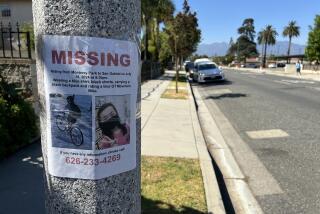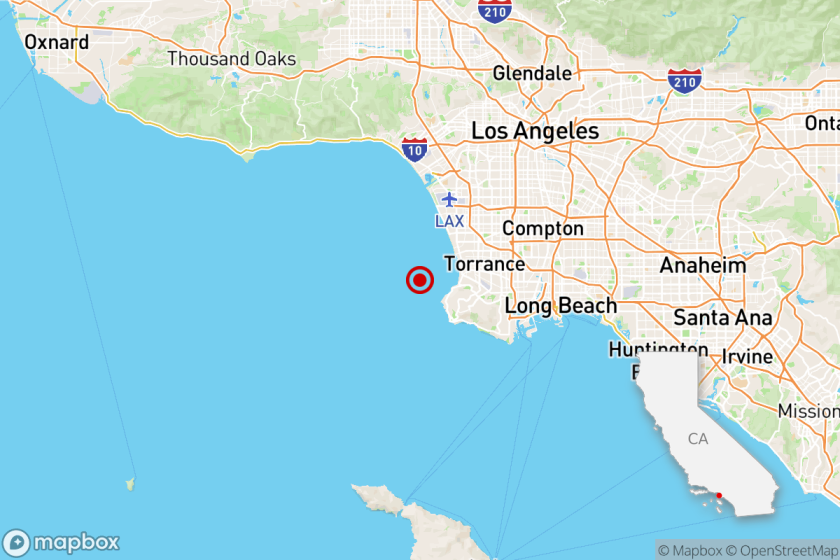Judicial Campaign Costs Soar : Elections: Study finds average expenditure for a candidate climbs to $70,000. Many spend large sums of their own money, research shows.
Candidates for judicial positions are increasingly investing large sums of their own money on election campaigns, skewing the judiciary toward wealthier individuals who can afford to spend what it takes to win, according to a study of hundreds of Los Angeles County Superior and Municipal Court judicial campaigns.
The three-year study, carried out by the California Commission on Campaign Financing--a private, nonprofit, bipartisan research organization--also found that the average campaign expenditure for a judicial campaign has more than doubled every year since 1976.
Although the amount of money spent on judicial elections is relatively small compared to legislative and local elections, the study found that average judicial election costs have increased from $3,000 in 1976 to $70,000 in 1992.
The study, the most extensive research ever conducted of the Los Angeles County judicial election process, found that despite the increases in expenditures, voters are still “left in the dark as to the character, capabilities, [and] even names of judicial candidates.”
The reasons for the increase include the high cost of slate mailer endorsements, candidate ballot statements on the county’s general election voter pamphlet and campaign overhead costs.
Slate mailers, with fees ranging from $2,800 to $10,500, do not present any comprehensive statement by the judicial candidate, but are the most common means for candidates to reach a vast audience and to vie for voter recognition, the study found.
Candidates in 1994 devoted more than 80% of their campaign funds to slate mailers, according Craig Holman, the study’s director.
Because candidates rely on slate mailers to reach large numbers of voters, the public is not getting an accurate or reliable portrait of judicial candidates, the study said.
“If we are going to elect trial court judges . . . it is imperative that we at least develop a system of campaign finance reform such that judges are selected more on the basis of merit than on the basis of money,” said Rocco Siciliano, commission co-chair.
Donna Little, chair of the Judicial Elections Committee, said judicial campaign reform is long overdue.
“Unfortunately, we see more and more that judges are being challenged for political and economic reasons,” Little said. “It is difficult for a judge to be sitting on the bench and conducting a campaign simultaneously.”
Los Angeles County has the largest trial court system in the nation, with nearly one-third of all Superior and Municipal Court judges in California located in the county.
Although the majority of Municipal and Superior Court judges are appointed to the bench by the governor or elected without opposition, about 20% win their posts in contested elections.
Because of the rising costs of campaigning, candidates are faced with the problem of actively raising funds or investing their own money in their election.
The most disturbing trend, the commission found, is that candidates are increasingly tapping into their own bank accounts as the main source of financing. The study found that it is difficult to raise money for obscure judicial posts.
“In earlier races, judges weren’t financing their campaigns as much as now,” Holman said. “Now it is the judge with personal wealth who runs and wins.”
In open seat races, winners outspent losers by about 4 to 1, the study found.
But spending more money does not always result in victory.
In last year’s heated Superior Court race between former Assemblyman Terry Friedman and attorney John L. Moriarity, the loser outspent the winner. Moriarity spent $378,000 (to Friedman’s $295,000) and lost to Friedman by 9 percentage points.
Moriarity’s campaign consultant, Joe Cerrell, sees other issues, such as political influence and name recognition, as crucial factors in winning.
“I’ve never thought that money wins election,” Cerrell said. “It is extremely helpful. You don’t have to match dollar for dollar, you just have to be competitive.”
When judicial candidates do raise money from contributors, it is usually from practicing attorneys. And that, the study’s authors said, could present a conflict of interest.
Elizabeth Lambe, local government affairs director for California Common Cause, questions which is more troublesome--one large contribution to yourself or taking money from attorneys.
“The lesser of two evils is to have the money come from themselves,” Lambe said. “The cost may be having self-funded candidates, but that is a better situation than money coming from sources that could pose a conflict of interest.”
More to Read
Sign up for Essential California
The most important California stories and recommendations in your inbox every morning.
You may occasionally receive promotional content from the Los Angeles Times.






